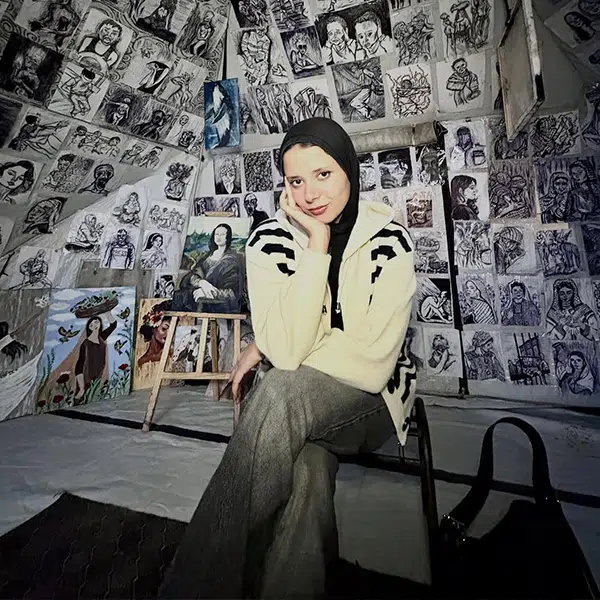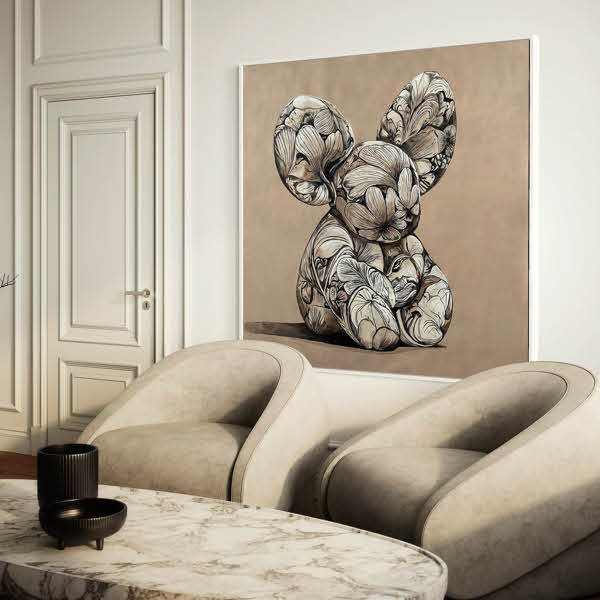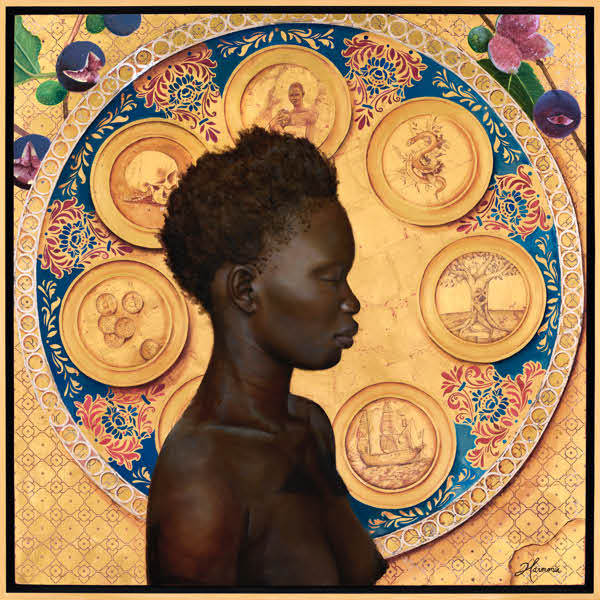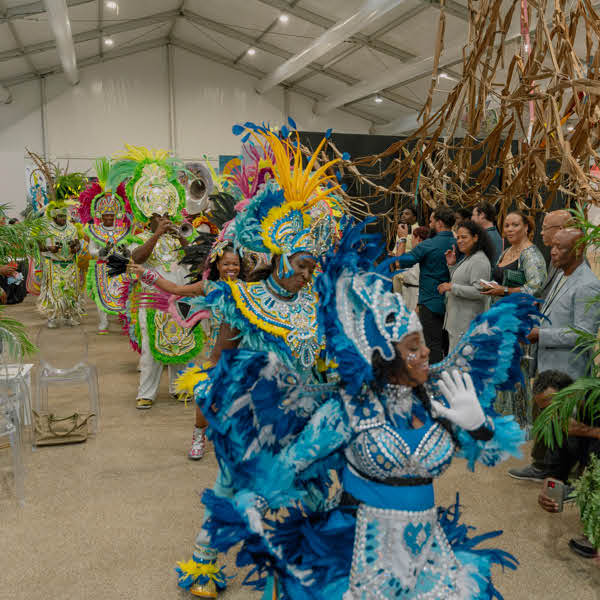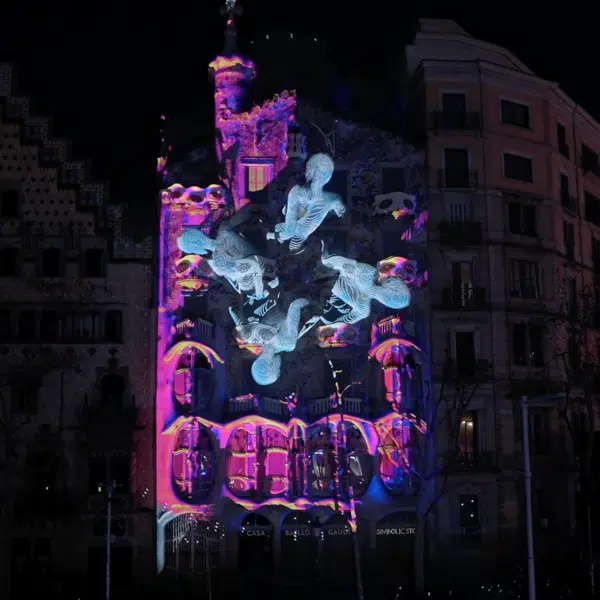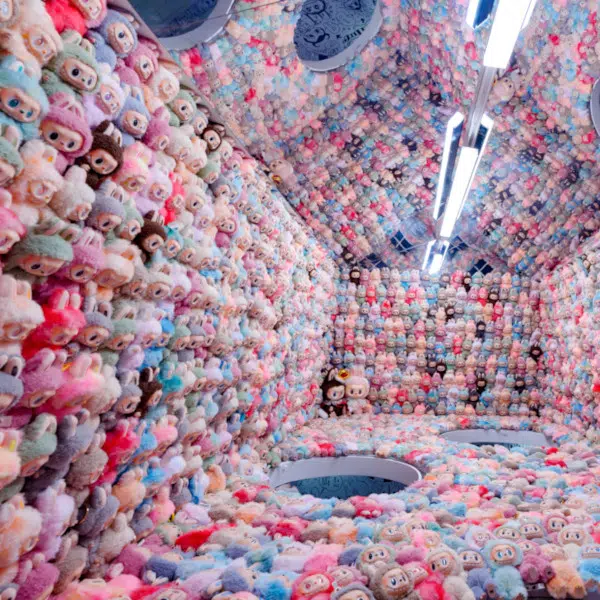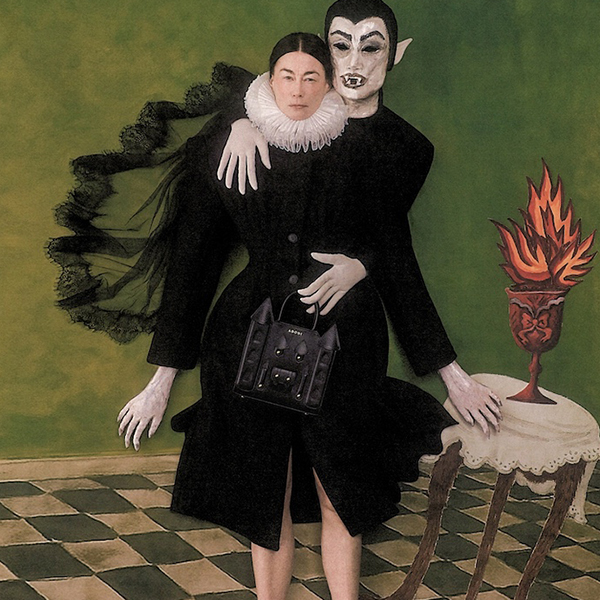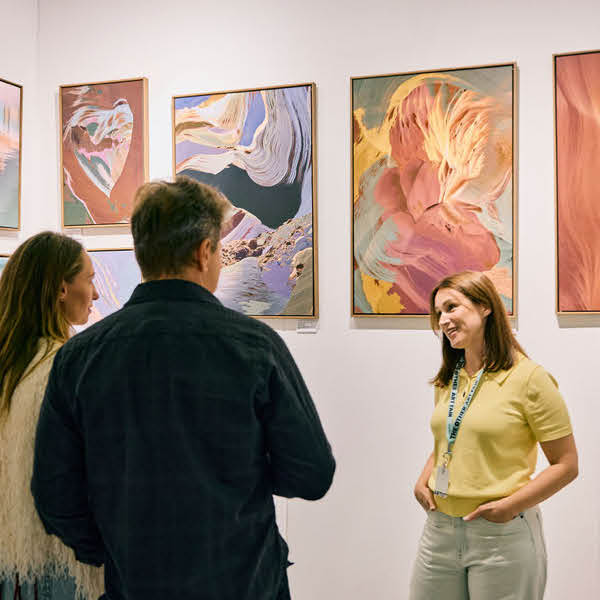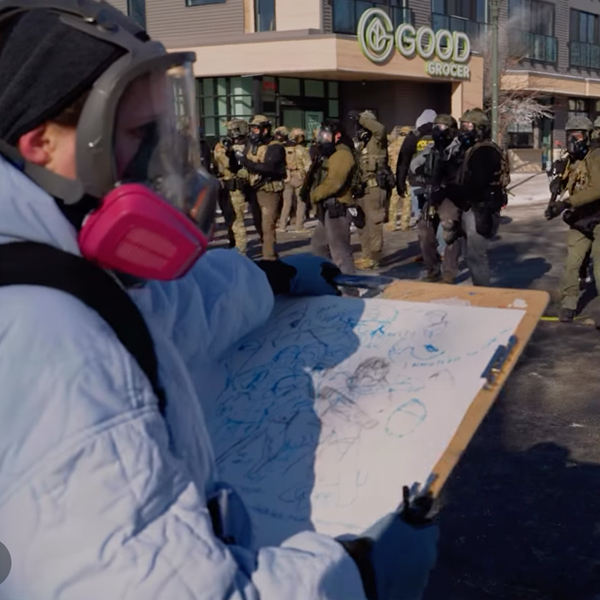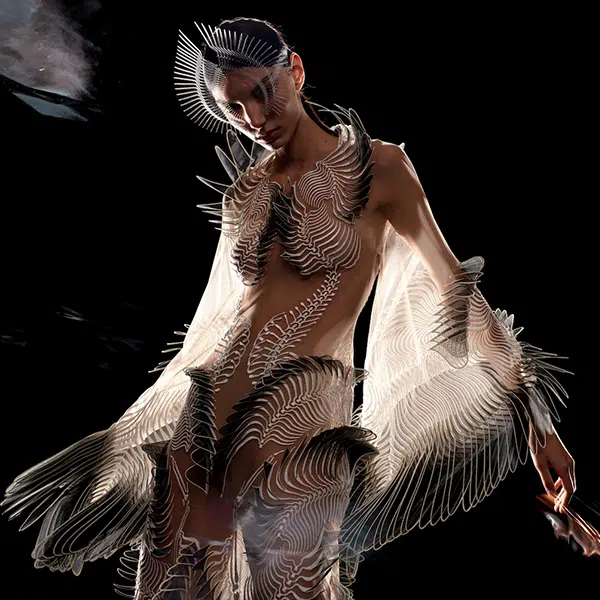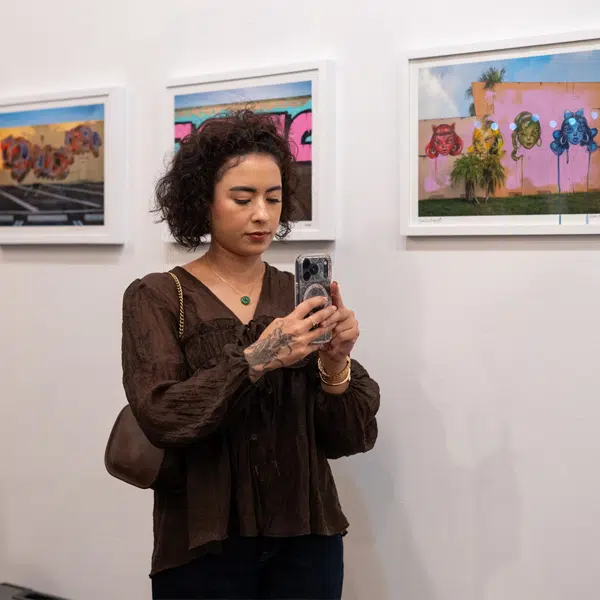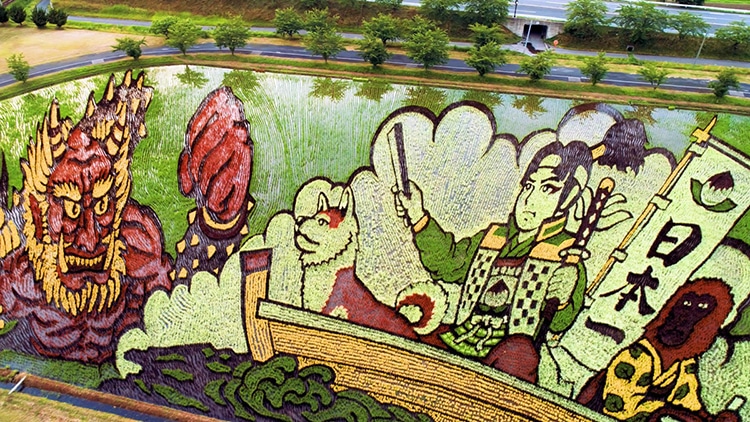
As part of a revitalization effort in the early 90s, the village of Inakadate, Japan, decided on a novel way to boost tourism in their town: large-scale rice paddy art. Now, using seven different kinds of rice as their color palette, over a thousand local volunteers come together each year to help with the planting process. Over time, the designs have evolved in complexity and now draw in hundreds of thousands of tourists every year.
Every April, a conference is held to decide on the design for the next year. When the theme is set, the village officials make a basic digital mockups, which is then refined by local art teachers into intricate concept drawings. Markers are then placed, mapping out each drawing before the planting begins. This process can take up to three months.
Each 15,000-square-meter mural often celebrates local heritage and folklore, such as this year’s designs, which depict the legend of Yamata no Orochi (the eight-forked serpent) facing off against the Shinto god of sea and storms, Susanno.
This Japanese village creates world famous rice paddy art which often celebrate local folklore.
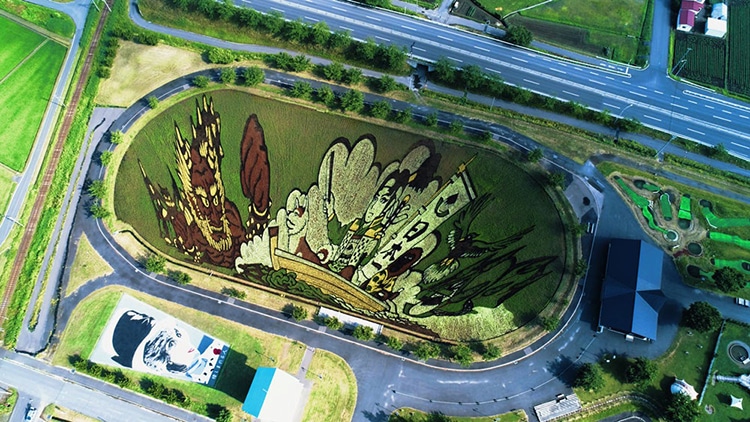
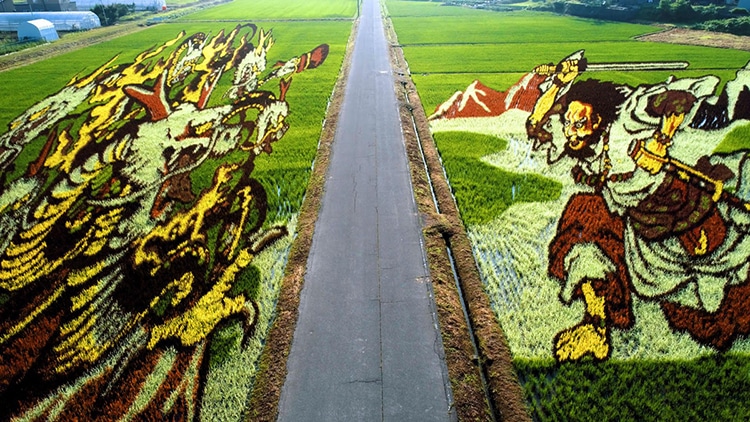
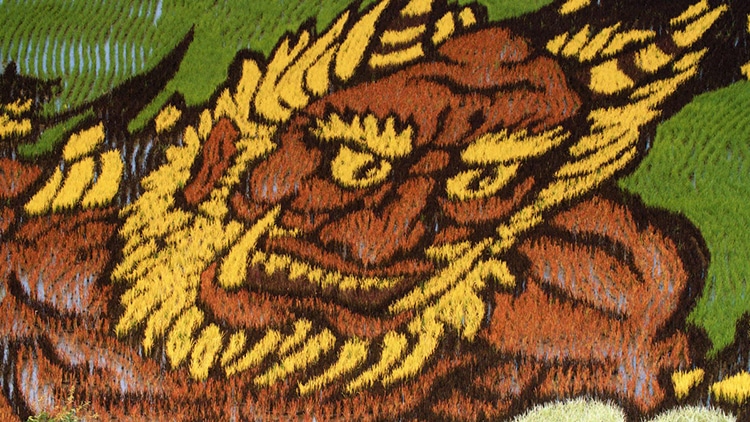
Watch the village’s Vice Mayor, Yukio Kasai explain the process:
h/t: [Colossal, Great Big Story]
Related Articles:
Indian Folk Art “Rangoli” Uses Colorful Flour and Rice in Stunning Designs
Chinese Farmers Grow Extraordinary Rice Paddy Art in Vast Fields
Japanese Artist Inspired by Tsunami Creates Large-Scale Watercolor Paintings of Desolation












































































